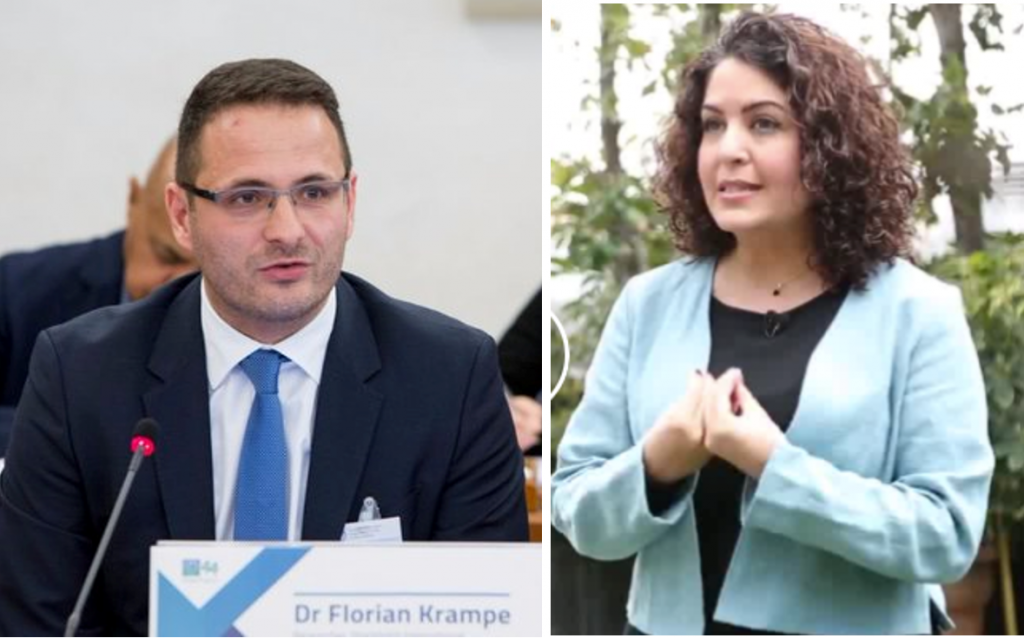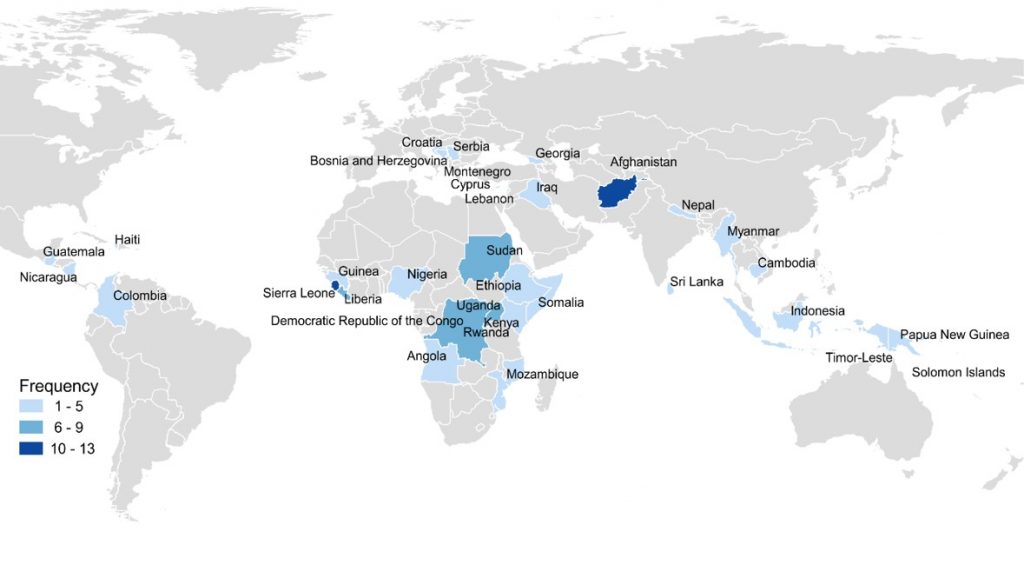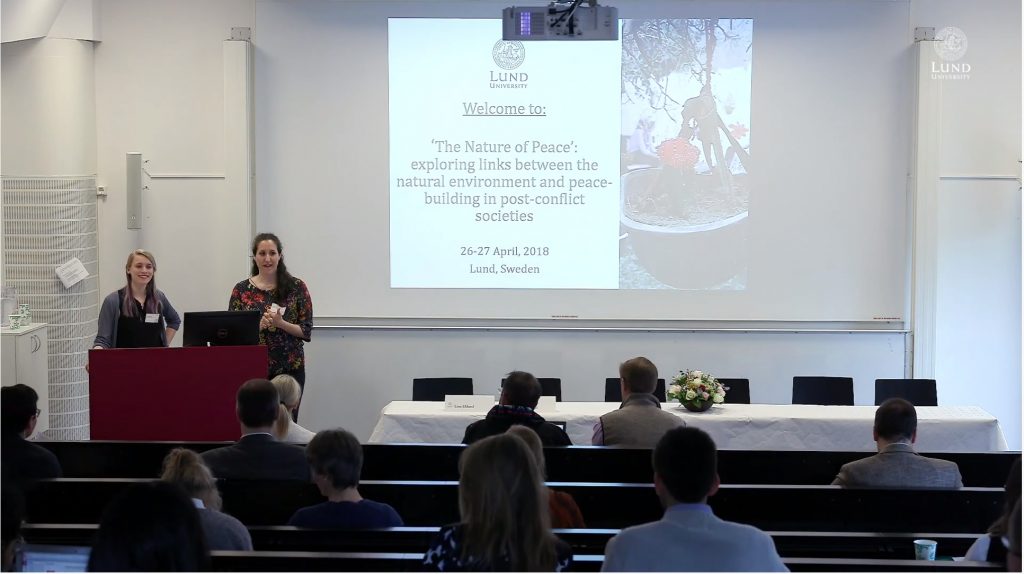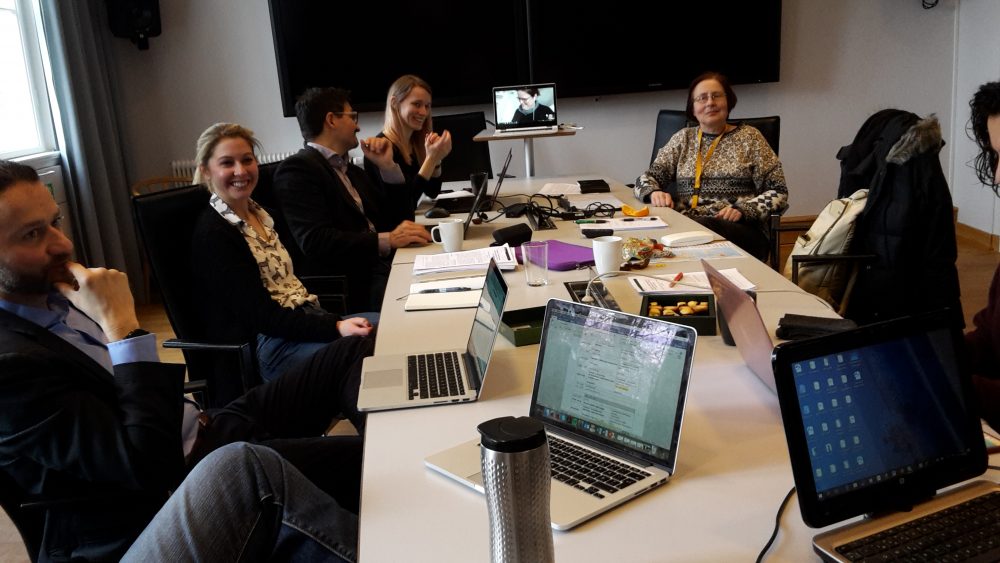In September 2016, we initiated a research journey to understand the interconnections between bringing peace to post-conflict societies and the role of nature in that matter. After almost two years of seminars, international exchanges, conversations with researchers in the field of environment and peacebuilding, an international conference and a research review analysis, we concluded this initial phase of our research in April 2018.
We reflected on the role assigned to the natural environment in peace and post-conflict academic studies. Moreover, we analyzed the complexities of defining both peace and nature concepts and the implications of this framing both for research and policy. Here, we looked back at the key moments of our learning process.
The beginning
The Nature of Peace started as an Advanced Study Group in 2016 thanks to the support of the Pufendorf Institute of Advanced Studies at Lund University, which seeks to promote interdisciplinary discussions on relevant and novel research issues.
We – 12 researchers from different disciplines ranging from theology to natural science – got together to examine how human activities shape, produce and influence those non-living human processes during peace-building situations.
Becoming a research theme
In September 2017, we became a research theme of the Pufendorf Institute. During this time, we did almost 30 meetings to continue our conversations on how the conceptualization about peace and the natural environment differs in disciplines such as political science, human geography, environmental studies or law. We guided our sessions with questions such as: What is the nature for a law researcher? What does the same word mean for a human geographer? What can we learn from the difference?
We also focused our activities on inquiries such as: how the environment is considered in fragile economies that need to develop? why peace consolidation can also generate processes of environmental degradation? or whose meaning of peace prevails in the pressing moments of securing development and stability?
We enriched our work with the visits of two guests’ researchers in March and April of 2018. They are Rania Masri, an environmentalist, and human right activist and Regional Coordinator at ACKNOWL-EJ (Academic-Activist Co-Produced Knowledge for Environmental Justice); and Florian Krampe, researcher in SIPRI’s Climate Change and Risk Project and Affiliated Researcher at the Research School for International Water Cooperation at the Department of Peace and Conflict Research at Uppsala University and the Unesco.

Revealing general tendencies
Along with our meetings, we elaborated a working paper to present our systematic literature review about the intersection of nature, peace, and post-conflict. We assessed 103 peer-reviewed academic articles published in English by characterizing the theories used, the research design, the methodology and the definitions of peace and nature predominantly used.
Among our several findings, we mainly identify that there is a growing body of literature in the field of environmental peacebuilding in the last six years. Most of the research corresponds to empirical studies and qualitative methods prevailed in the field. The literature mainly focuses on African and Asia contexts.

Regarding the conceptual approaches, we highlight that there is a dominant framing on the natural environment as strategic natural resources (timber, water, minerals, oil) for offering economic development in war-impacted societies in the aftermath of the conflict. We stress the shortcomings of this view and point out theoretical gaps to address in further research. Our paper- which is under revision- will soon be disseminated through this blog.
Our conference: engaging with a larger community
On April 26th and 27th of 2018, we organized The Nature of Peace Conference at Lund University. The event brought together around 35 researchers and participants interested in understanding the interlinks between the natural environment the peacebuilding agenda. We structured the event in 20 presentations divided into six seminars and three interactive sessions, where participants shared their research projects ranging different disciplines and geographies.
We received stimulating feedback for our reflections on how notions of peace, conflict, resources, and nature are applied in diverse research projects of universities in the United Kingdom, Sweden, Ireland, Colombia, Canada, Finland, United States, among other countries. We took advantage of the two-day conference to also spread some of the findings of our systematic literature revision.

With this event, we fished this first phase of The Nature of Peace project. Based on the knowledge acquired along these almost two years of research, we proposed a second phase focusing on socio-ecological impacts of peace during post-conflict Uganda and Colombia. We believe that the conceptual reflections of the first phase will guide our fieldwork and case-based analysis to continue contributing to a more critical oriented view on how to integrate the natural environment after the guns fell silent in different societies.
The researchers participating in The Nature of Peace phase I:
Lina Eklund (coordinator)
lina.eklund@cme.lu.se
Maria Andrea Nardi (coordinator)
maria.andrea.nardi@rwi.lu.se
Maria Ericson
maria.ericson@rwi.lu.se
Alejandro Fuentes
alejandro.fuentes@rwi.lu.se
Torsten Krause
torsten.krause@lucsus.lu.se
Yahia Mahmoud
yahia.mahmoud@keg.lu.se
Micael Runnström
micael.runnstrom@nateko.lu.se
Britta Sjöstedt
britta.sjostedt@jur.lu.se
Fariborz Zelli
fariborz.zelli@svet.lu.se
Joshka Wessels
joshka.wessels@cme.lu.se
Sandra Valencia
sandra.valencia@chalmers.se
Ana Maria Vargas-Falla
ana.maria.vargas@icld.se

